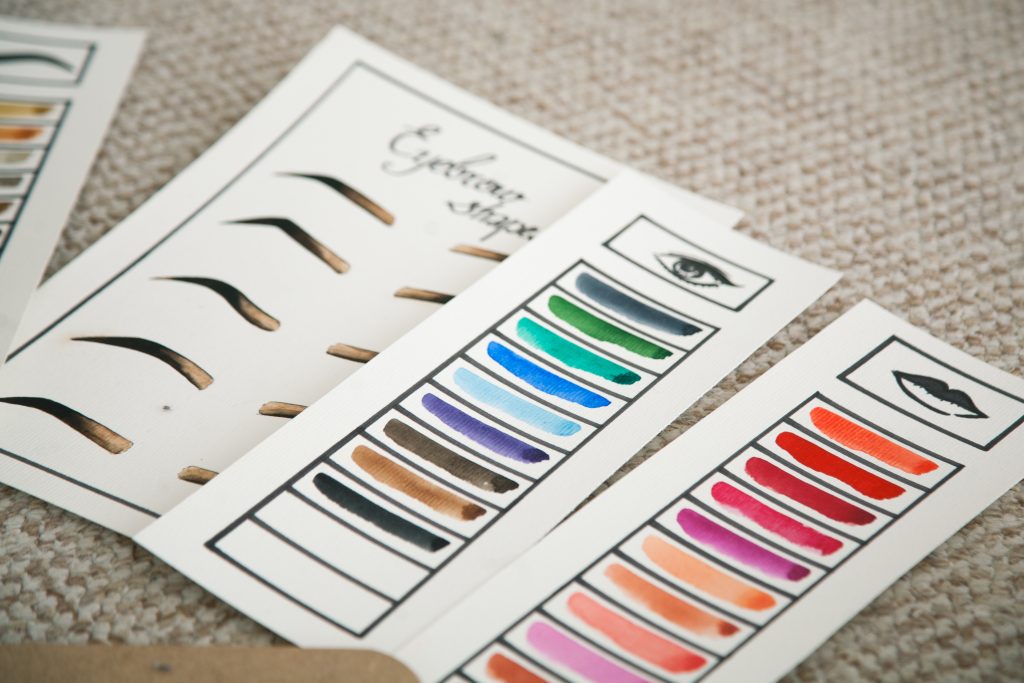Oh, this is a great question, and one I get asked quite often. People are often under the impression that permanent makeup isn’t really permanent. Let me give you the real skinny!
What is permanent makeup (PMU) anyway?
Permanent makeup is a cosmetic tattoo. It resembles makeup and is most frequently applied to the areas of the face, such as eyeliner, lip color, freckles and eyebrows.
Paramedical procedures, which are non-surgical solutions for post-surgery and trauma survivors, are also a type of permanent makeup. Skin and scar camouflage and nipple/areola repigmentation can help people feel whole again. Skin camouflage helps improve the appearance of skin diseases like Vitilego, while scar camouflage reduces the appearance of scars due to accidents, burns, surgery, or to repair disorders like Cleft Palate. A finishing touch to breast reconstruction often includes having the nipple and areola tattooed.
Other common terms for permanent makeup include micropigmentation, dermapigmentation, and cosmetic tattoo. Technicians in the industry use many names to describe the services they perform. Some popular ones are microblading, microshading, powder brows, ombre brows, combination brows, lip blush, lash enhancement, permanent eyeliner and many others.

Is PMU really permanent?
Cosmetic tattoo is considered a permanent procedure. While it does fade over time, no technician can accurately predict how quickly or how much it will actually fade. Many factors have an effect on the fading process, and each of them vary from client to client. The skill level of the technician performing the procedure, as well as each person’s unique body chemistry, medical history, and lifestyle are all contributing factors to the fading process.
Let’s take a quick peek into those contributing factors:
Technical Skill
Each artist possesses a unique skill set. In the absence of proper training (which does exist!) problems arise. Proper placement of the pigment is in the upper dermal layer of the skin. If placed too superficially, it will disappear or flake off during the cell renewal activity of the epidermis. If implanted too deep, it will have the opposite effect. Pigment will fade more slowly, and can even ‘bleed’ beneath the skin, creating a blurred look.
Body Chemistry, Medical History, Lifestyle
Body Chemistry: All skin is different, and this plays a major role in how quickly pigment fades. Dry skin retains color the longest. Oily skin, on the other hand, fades more quickly. This is due to the oils coming through the skin, which expel the pigment at a faster rate. The older you are, the longer it will likely take the pigment to fade. Aging skin has a slower cell renewal process, thereby hanging on to the pigment for a longer period of time.
Medical History: Among other things, medical conditions can cause hormonal changes in the body. This also makes it difficult to predict how long permanent makeup will last.
Lifestyle: Exposure to the sun, excess sweating, and facial care maintenance vary from client to client. Just as the sun will prematurely cause fading in hair color, it can do the same with cosmetic tattoo. And just as oily skin fades more quickly, one who goes to the gym daily and sweats profusely should expect a quicker fading time. The use of Retinols/Retin-A’s, and other anti-aging creams or serums containing acids WILL fade your permanent makeup prematurely. This simply means you will need a touch-up sooner, or you can always keep those products away from areas where PMU has been applied.
Need help choosing an artist?
On the fence about whether PMU is for you? Learn more about choosing a skilled artist… one who will provide top quality service and excellent results here. As always, if you found this information helpful or have specific questions you’d like addressed, drop a comment.
Till next time!